Once you’re done appreciating the beautiful visuals, have a look at what we learned from this stage-setter:
- Elsa has complete control over her powers as a child. We don’t see her use them with that much dexterity again until Let it Go.
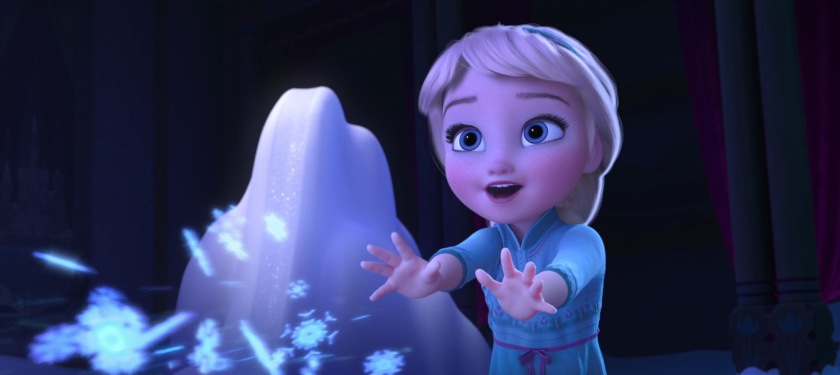
- The moment where Elsa loses control over her powers is the moment where she realizes Anna is hurt, and not waking up. We watch the ice spread over the room, destroying all the fun they were just having (including Olaf version 1).
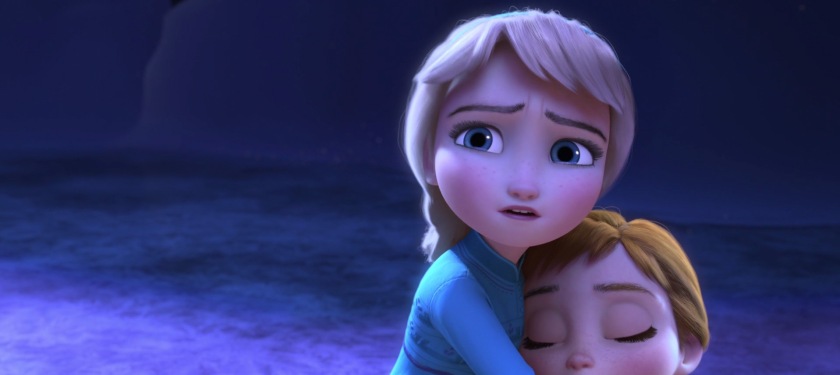
- “Elsa, what have you done?” is the father’s first reaction, followed by “This is getting out of hand!”
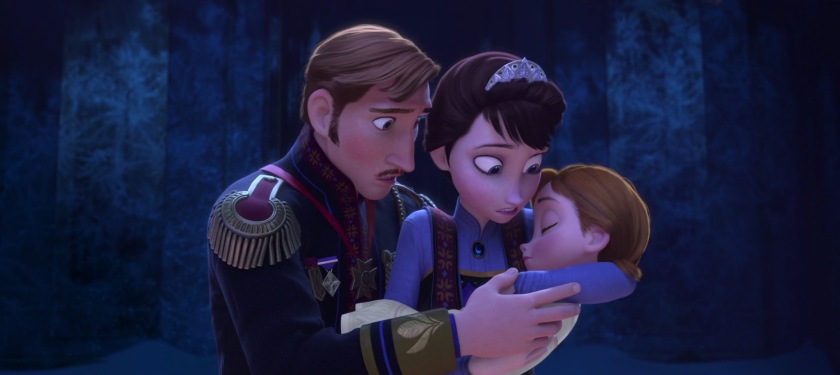
- The troll says to her: “Your power will only grow. There is beauty in it, but also great danger. You must learn to control it. Fear will be your enemy.”

- Her father responds: “We’ll protect her. She can learn to control it, I’m sure. Until then, we’ll lock the gates. We’ll reduce the staff. We’ll limit her contact with people, and keep her powers hidden from everyone.”
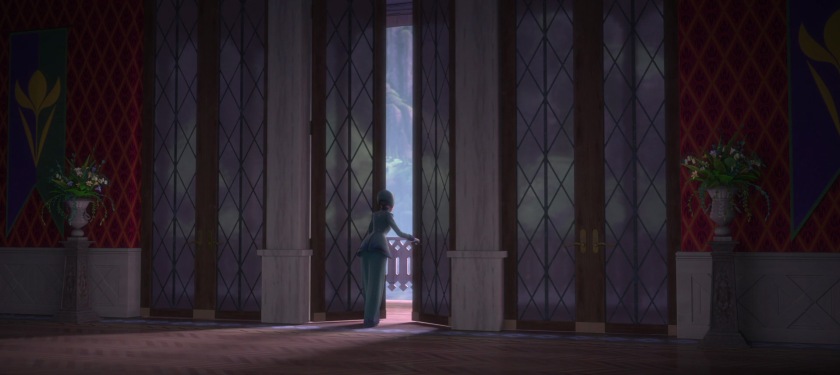
We know that this moment is the turning point in Elsa’s view of her powers – presumably her parents had always somewhat feared this, judging by that “This is getting out of hand!” comment, but Elsa hadn’t feared her powers until this incident.
What we want to talk about here is the fact that a lot of people have said that the King and Queen were abusive. Try out those links and have a read about this because this film has a lot of depth, and we are all about excessively analyzing animated features.
Despite many good points made in the linked articles, we would argue that Elsa’s parents were not abusive. Rather, we believe that Elsa internalized her father’s fear, and the troll’s warning, far more than either of them anticipated. Although her struggle is no less legitimate, we think the true cause of her emotional turmoil is not abuse, but rather her inability to overcome her fear of hurting the people she loves – most importantly, Anna.
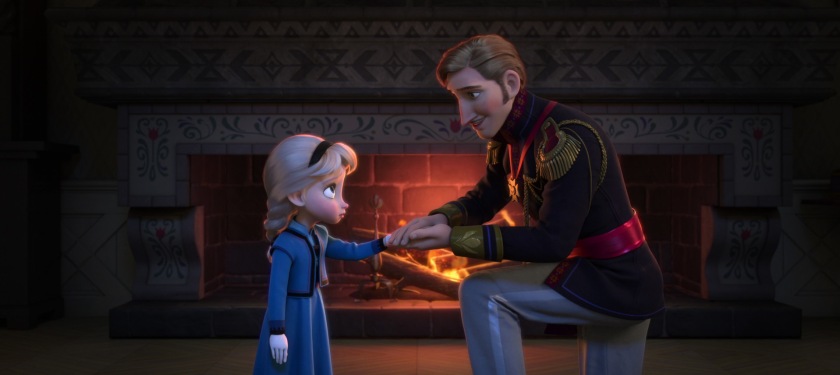
“Conceal it, don’t feel it. Don’t let it show.”
Many of us read this, at one time or another, as abuse. It’s true that this may not have been the best way to teach Elsa how to control her powers. On the other hand, let’s revisit what the King said to the troll: “We’ll protect her”. We all know that ‘he meant well’ is not an excuse for abuse, but we also all know that the King’s fears of how people would react to his daughter’s powers did actually end up being true. He wanted to conceal her powers from people until such time that she could learn to control them, to prevent her from being labelled a monster.
The ironic thing is that until the moment Elsa hurt Anna, she could control her powers. But she lost control, not because her dad put gloves on her, but because she held her sister’s lifeless body and knew it was her fault.
Elsa develops an intense fear of her own powers. Her parents try to help her, and she pushes them away, saying “I don’t want to hurt you.” You can see in their faces that they didn’t mean for this – they want to support her, but they do have to stay back, because Elsa is, at this point, dangerous.
Of course, this is a Disney movie, so the parents go ahead and die, leaving the young people to have their Coming of Age story. So what is the major thing that Elsa has to overcome? Is it, as many have argued, overcoming the effects of long-term parental abuse?
Instead, we believe the main thing – the only thing – that Elsa has to overcome is her internalized guilt. This is the thing that ties her story to Anna’s. Anna, her good, warm sister, the embodiment of everything Elsa’s dangerous ice powers stand to destroy if she can’t control them. Anna, the person who started this all by getting hurt in the first place.
The King and Queen may have tried to protect Elsa by isolating her, but we would also argue that they tried to teach her to control her emotions and her powers, which was the exact thing she needed to do from the start. Although they weren’t successful in helping her, they weren’t the cause of the problem, either.
Luckily, Elsa grew on her own – she faced and overcame her fear of killing Anna, and she learned that allowing herself to be close to people does the exact opposite of endangering them – it allows her to melt her ice. Symbolism!
On the other hand, we can think of a recent Disney film that (sort of) handles parental abuse and the struggles of getting past it.
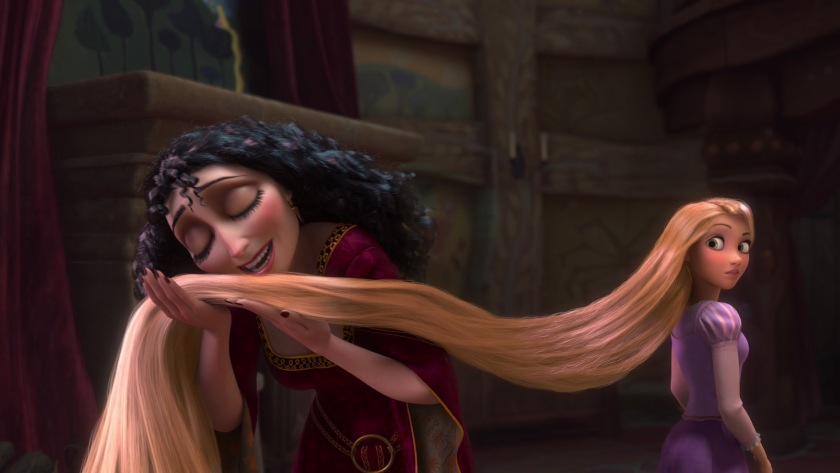
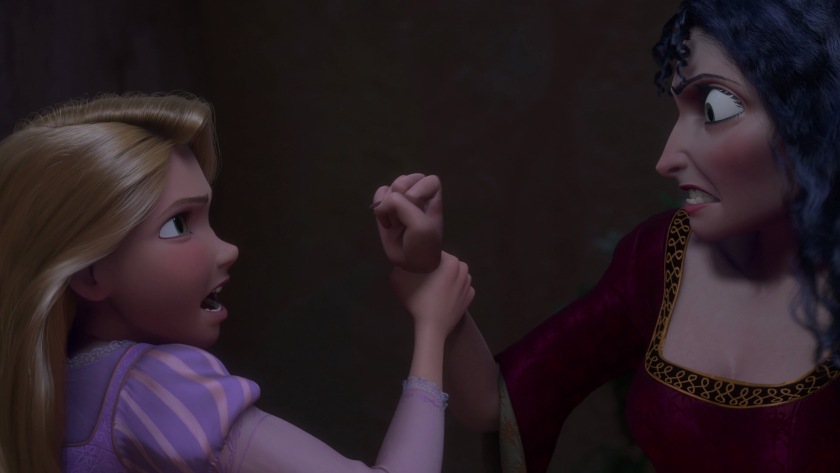
Aside from the fact that Rapunzel seems to get over the whole ordeal in 30 seconds.




Another great piece. I’ve always thought the parents were harshly treated by those who accuse them of abuse. In fact, I think understanding their motivations for their actions is key to the plot. As the trolls say in Fixer Upper (yes, that song again. Hey it’s awesome) ‘people make bad choices when they’re mad or scared or stressed.’
I can’t think of anything scarier than one of your young children losing control and hurting the other. They do what they do to protect their children. It’s a bad choice, but bad choices are part of being human, and every single character in the film makes bad choices. What makes it so special is that we’re asked to understand and accept those bad choices, and love the characters anyways.
Except Hans. He’s a dick.
[…] would recommend the following erm and three masterpieces: I Want: Our Guide to Disney Princesses, In Defence of Mr and Mrs Arendelle, Beauty and the Beast, The Ethics of the Sun’s Gift, and because I wouldn’t feel right […]
[…] some point, and they almost all make bad choices. Anna and Elsa’s parents (who have received a wonderful defence from the whip-smart Sisters Switch) are faced with a Sophie’s Choice style situation when […]